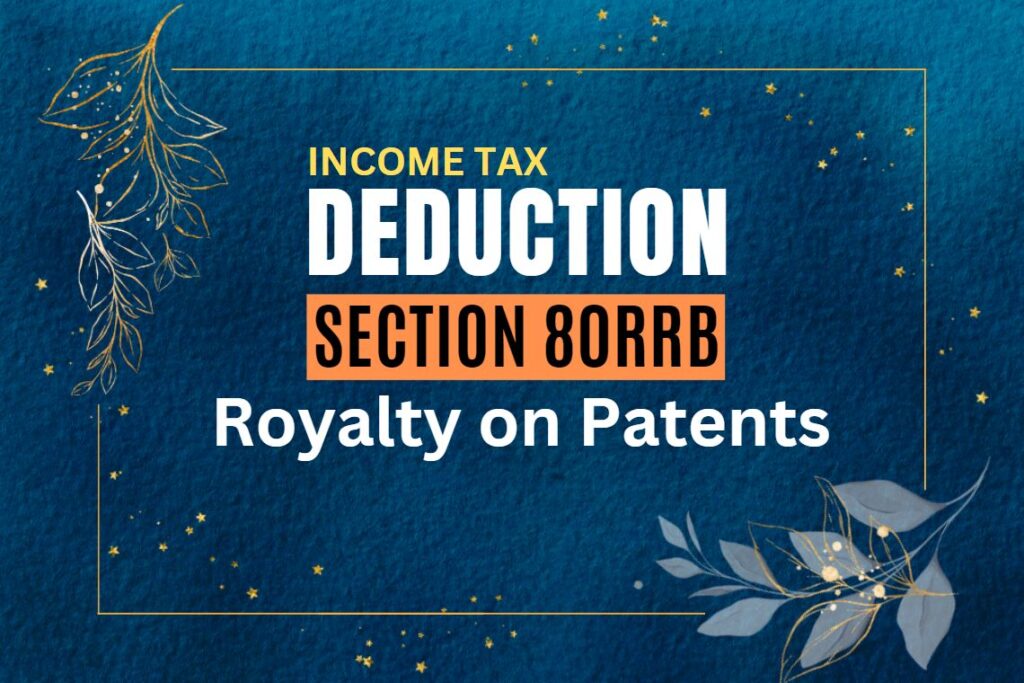Understanding of Section 80D
Section 80D of the Income Tax Act provides individuals with a deduction in respect of medical insurance premiums paid. This section is aimed at encouraging taxpayers to avail medical insurance coverage for themselves and their families.
Under Section 80D, taxpayers can claim deductions on the premiums paid for medical insurance policies taken for themselves, their spouses, children, and parents. The deduction limit varies depending on the age and category of the insured individuals. Also, when and to what extent available is depends upon the following conditions if satisfied –
- The taxpayer is an individual (maybe resident/non-resident or Indian citizen/foreign citizen) or a Hindu Undivided Family (maybe resident or non-resident).
- Payment should be made out of income chargeable to tax.
- Payment should be made by any mode other than cash. However, payment on account of preventive health check-up can be made by any mode (including cash).
- Deduction is allowed for the following purpose :-
(a) In case of an individual: It is allowed for—
(i) the amount paid to effect or to keep in force an insurance on the health of the assessee or his family or his parent or parents, or
(ii) any contribution made to the Central Government Health Scheme or such other scheme as may be notified by the Central Government in this behalf
(iii) any payment made on account of preventive health check up of the assessee or his family or check up of the parent or parents of the assessee.
Family means the spouse and dependent children of the assessee
(b) In the case of an HUF:
It is allowed for the amount paid to effect or to keep in force an insurance on the health of any member of that Hindu Undivided Family.
(c) In case of senior citizen:
Deduction on account of medical expenditure incurred (instead of sum paid to effect any insurance of the health).
- The health insurance should be in accordance with a scheme framed in this behalf by (a) GIC and approved by the Central Government, or (b) any other insurer and approved by the Insurance Regulatory and Development Authority.
- The payment should be made by him by any mode of payment other than cash. However, for preventive health check up, it can be made in cash also.
- The amount is paid out of his income chargeable to tax.
Quantum of Deduction under Section 80D:
(1) Where the Assessee is an Individual:
The deduction allowed shall be the aggregate of the following, namely:—
(a) (i) the whole of the amount paid to effect or to keep in force an insurance on the health of the Assessee or his spouse and dependent children or
(ii) any contribution made to the Central Government Health Scheme (CGHS) as does not exceed in aggregate Rs.25,000; and
(b) the whole of the amount paid to effect or to keep in force an insurance on the health of the parent or parents (whether dependent or not) of the assessee as does not exceed in aggregate Rs.25,000.
Preventive Health Check-up
However, for preventive health check-up of assessee his family or his parent or parents, the maximum amount allowed shall be limited to Rs.5,000 and such amount subject to maximum limit of Rs.5,000 shall be within the overall ceiling of Rs.25,000 given in (a) or (b) above.
Additional Deduction of Rs.25,000:
Where the sum specified in clause (1)(a) or (h) is paid to effect or keep in force an insurance on the health of any person specified therein, and who is a senior citizen, an additional deduction of Rs.25,000 shall be allowed. In other words, the deduction shall be Rs.50,000 instead of Rs.25,000.
(2) Where the Assessee is a Hindu Undivided Family (HUF):
The deduction allowed shall be the whole of the amount paid to effect or to keep in force an insurance on the health of any member of that Hindu undivided family as does not exceed in aggregate Rs.25,000.
Additional Deduction of 25,000:
Where the sum specified in clause (2) above is paid to effect or keep in force an insurance on the health of any person specified therein, and who is a senior citizen, an additional deduction of Rs.25,000 shall be allowed. In other words, the deduction shall be Rs.50,000 instead of Rs.25,000.
(3) Deduction on account of medical expenditure incurred (‘instead of sum paid to effect any insurance of the health) to be allowed in case of a Senior Citizen
The individual may claim the following deduction instead of the deduction available under clause (1) above:
(i) the whole of the amount paid on account of medical expenditure incurred on his health or any member of his family as does not exceed in the aggregate Rs.50,000; and
(ii) the whole of the amount paid on account of medical expenditure incurred on the health of any parent of the assessee, as does not exceed in the aggregate Rs.50,000.
However, the following two conditions must be satisfied to claim deduction of the amount referred to in sub-clause (i) or sub-clause (ii) above:
(a) The amount should be paid in respect of a senior citizen, and
(b) no amount should have been paid to effect or to keep in force an insurance on the health of such person.
Further that the aggregate of the sum specified under clause (1)(a) and clause (3)(i) above or the aggregate of the sum specified under clause (1)(b) and clause (3)(ii) above shall not exceed Rs.50,000.
Example :
Example for claiming Deduction under Clauses (1) and (2) above:
R pays (through any mode other than cash) during the previous year medical insurance premia as under:
(i) Rs.24,000 to keep in force an insurance policy on his health and on the health of his wife and dependent children;
(ii) Rs.34,000 to keep in force an insurance policy on the health of his parents.
R will be allowed a deduction of Rs.49,000 (Rs.24,000 + Rs.25,000) if neither of his parents is a senior citizen. However, if any of his parents is a senior citizen, he will be allowed a deduction of Rs.58,000 (Rs.24,000 + Rs.34,000). Whether the parents are dependent or not, is not a consideration for deciding the deduction under the new section.
Further, in the above example, if cost of insurance on the health of the parents is Rs.60,000, out of which Rs.34,000 is paid (by any non-cash mode) by the son and Rs.26,000 by the father (who is a senior citizen), out of their respective taxable income, the son will get a deduction of Rs.34,000 (in addition to the deduction of Rs.24,000 for the medical insurance on self and family) and the father will get a deduction of Rs.26,000.
Example for claiming Deduction under Clauses (1) and (2) above:
| Particulars | Rs. |
| (i) For Individual and his family | |
| – Health insurance premia | 27,000 |
| (ii) For parents | |
| – Health insurance of Mother | 22,000 |
| – Medical expenditure on father (senior citizen) | 30,000 |
| – Deduction eligible u/s 80D Rs.25,000 + Rs.50,000 | 75,000 |
| 1. The deduction is allowed when the payment is made to GIC or any other approved insurer, it is popularly known as Mediclaim Scheme.
2. The deduction is allowed to non-resident also if the above conditions are satisfied. 3. Senior citizen means an individual resident in india who is of the age of 60 years or more at any time during the relevant previous year. Hence in the case of an individual who is of the age of 60 years or more and is a non-resident in India, the deduction will be limited to Rs.25,000 as he will not be considered to be a senior citizen for this purpose. 4. In the case of an individual who is of the age of 60 years or more but is a non-resident in India, the deduction will be limited to Rs.25,000 (instead of Rs.50,000) as he will not be considered to be a senior citizen for this purpose. |
Important Points to be Note :
Here are some other important points to note regarding Section 80D:
- The deductions under Section 80D are available in addition to the deductions available under Section 80C for investments in specified instruments like life insurance premium, provident fund, etc.
- Insurance policies purchased from foreign insurers are also eligible for deductions under Section 80D.
- If both spouses are eligible to claim deductions for health insurance premiums, they can each claim the deduction separately.
- Any reimbursement received from the employer towards health insurance premiums will reduce the deduction available under Section 80D.











